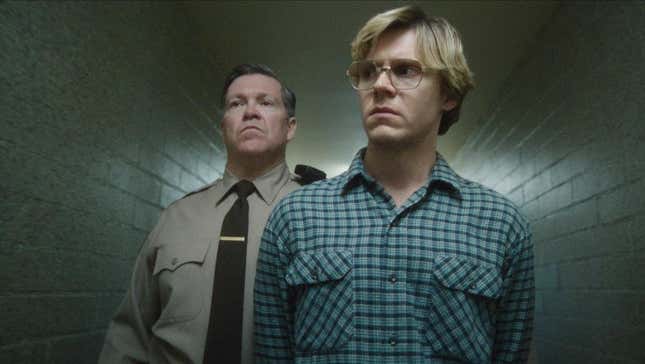Family of Jeffrey Dahmer’s Victim Say Netflix Series Is ‘Retraumatizing’ Them ‘Over and Over’
Netflix's Dahmer is the platform's most streamed show, but many are raising concerns it continues a tradition of glamourizing serial killers.
EntertainmentTV

Since Dahmer premiered on Netflix on Sept. 21, the show has broken the streaming platform’s record for most-watched first week for a new series, surpassing even Squid Game, per internal data released Tuesday. But the serial killer show hasn’t shot to no. 1 without a good deal of controversy. Netflix was pressured to remove the LGBTQ tag from the series after backlash from some in the queer community, and now family members of one of Dahmer’s 17 known victims—who were disproportionately gay men and gay men of color, murdered between 1978 and 1991—are speaking out against the show and questioning why it was even made.
Over the weekend, Rita Isbell, sister to Dahmer victim Errol Lindsey, wrote a personal essay for Insider about her reaction to the show. She recounted the moment she read her victim impact statement to Dahmer in 1992, at one point stepping off the witness stand and rushing at him (a scene recreated by Dahmer), and, after enduring the pain of losing her brother and weathering Dahmer’s very public trial, she wrote of the show, “I don’t need to watch it. I lived it.”
“When I saw some of the show, it bothered me, especially when I saw myself—when I saw my name come across the screen and this lady saying verbatim exactly what I said,” Isebll said of the Dahmer scene depicting the moment she read her statement in court. “If I didn’t know any better, I would’ve thought it was me. … That’s why it felt like reliving it all over again. It brought back all the emotions I was feeling back then.”
Further adding to the pain, Isbell said Netflix had never contacted her regarding the show. She called it “sad” that Netflix is “just making money off this tragedy. That’s greed,” and suggested that the show give “some of the money to the victims’ children.”
-

-

-

-

-

-

-

-

-

-

-

-

-

-

-

-

-

-

-

-

-

-

-

-

-

-

-

-

-

-

-

-

-

-

-

-

-

-

-

-








































